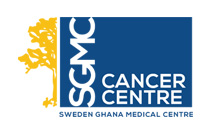What is Cancer?
Cancer describes a group of diseases in which cells in the body divide without control or order. As the cells multiply, they form a structure that we call a tumour. Not all tumours are cancerous. We say a tumour is malignant or cancerous when it destroys adjacent tissues in the body. Non-cancerous (benign) tumors do not invade into surrounding tissues, and they do not spread to other parts of the body (metastasis).
There are more than 200 different types of cancer, each with a unique variety of signs and symptoms. Because there are so many diverse types of cancer, it also means that each cancer has a different diagnostic process, and related growth features, which is called staging. Different cancers also have to be treated in different ways.
Cancer in Africa
People get cancer for a variety of reasons. Some cancers are caused by viruses e.g. cervical cancer; other cancers are caused by cell mutations, and they give rise to tumours. These mutations can be induced by carcinogens from the environment – e.g. cigarette smoke. As Africans get more and more exposed to carcinogenic factors, the types and prevalence of cancers is increasing on the continent. Statistics show that cancer’s silent spread in Africa is growing year by year. This increase is also due to greater awareness, increased detection and improved cancer registry reporting.
The most prevalent cancers for men in Africa are prostate and liver cancer. Prostate cancer in West Africa has the second highest regional rate across Africa, and it is estimated that owing to a lack of diagnosis, it is likely that the numbers are actually much higher. Liver cancer, which is associated with more deaths, is also the second most diagnosed type of cancer for West African men, and third most diagnosed for women. For women in West Africa, the highest incidents of cancer occur with breast cancer and cervical cancer. Incidents of breast cancer are on the increase across Africa. In 2012, breast cancer was listed as the leading cause of cancer deaths for women in Africa.
Treating Cancer
There are several standard treatment modalities available for cancer, such as chemotherapy, surgery, and radiation therapy. These treatment modalities are designed to complement an array of cancers and physical scenarios. Many cancer patients also incorporate alternative therapies into their cancer treatment plan.
The various stages of cancer require unique treatment strategies. Treating late-stage cancers, for example, may involve a variety of therapies and treatment modalities aimed at reducing the cancer’s symptoms. Treating early-stage cancers, on the other hand, may involve a simple curative procedure.
Cancer treatment differs depending on the unique characteristics of each cancer and patient. The appropriate treatment strategy relies on a number of factors, including the type, size, and location of the cancer, as well as the patient’s medical history and overall health.
